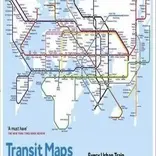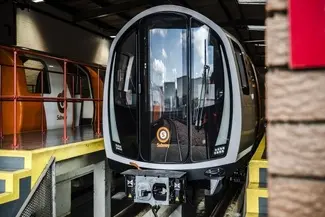Ballast Water Management Rules to Impact the Tanker Market

Tanker owners are faced with some very important decisions moving forward, as they will be faced with the dilemma of whether it makes financial sense to retrofit their older vessels or just sell them for demolition. This in turn will likely alter the balance between demand and supply, creating a new dynamic in terms of freight rates. In a recent report, shipbroker Gibson said that “the impact of the Ballast Water Management (BWM) Convention on future levels of demolition has been a hot topic for quite some time. The convention, ratified in September 2016, required all existing tonnage to install an approved BWT system at the 1st renewal of the International Oil Pollution Prevention (IOPP) certificate from 8.09.2017, which has traditionally been done alongside special survey every 5 years. As retrofitting a tanker with an approved system is expensive (around $2 mln for a VLCC), many analysts believed at the time that once in force the BWM requirement would accelerate demolition activity. However, in our view, the impact was always likely to be delayed, as some owners took advantage of a loophole to decouple the renewal of the IOPP certificate from the special survey; in other words, renewing the IOPP certificate prior to 8.09.2017 in order to trade up to 7.08.2022 without a BWM system”.
“However, following the pressure from shipowners, last week the Marine Environment Protection Committee (MEPC) made amendments to the BWM Convention, in general requiring existing tonnage (to which convention applies) to install an approved BWM system at the 1st renewal of the IOPP certificate following 8.09.2019, two years later than first intended. In greater detail, below is text of what the MEPC has agreed to”, said the shipbroker.
According to Gibson, “by the first renewal survey: this applies when that the first renewal survey of the ship takes place on or after 8 September 2019 or a renewal survey has been completed on or after 8 September 2014 but prior to 8 September 2017. • By the second renewal survey: this applies if the first renewal survey after 8 September 2017 takes place before 8 September 2019. In this case, compliance must be by the second renewal survey (provided that the previous renewal survey has not been completed in the period between 8 September 2014 and 8 September 2017)”.
The London-based shipbroker added that “undoubtedly, the above wording is complex and far from easy to digest, perhaps due to the intention of the MEPC to prevent further decoupling. In very simple terms (from the perspective of the global tanker fleet above 25,000 dwt), it means that only vessels that have not renewed their IOPP certificate between 8.09.2014 and 7.09.2017 (either alongside the special survey or separately by decoupling) will be allowed to renew the IOPP certificate between 8.09.2017 and 7.09.2019, without the need to install an approved BWM system. For these units, the BWM will have to be installed at the 2 nd renewal of IOPP certificate, at latest up to 7.09.2024. In contrast, tankers that have renewed their IOPP certificate between 8.09.2014 and 7.09.2017 will be required to install an approved BWM system at their 1 st renewal, at latest up to 7.09.22 (the original deadline)”.
Gibson added that “due to the above distinction, largely only tankers built between Sep 2002 to Sep 2004 (and where the IOPP certificate has not been renewed between 8.09.2014 and 7.09.2017) will be in position to buy extra time before heading for scrap. For tonnage built within three years up to Sep 2002 and within three years after Sep 2004, the deadline for the BWM installation remains unchanged, up to 7.09.2022. Also, tankers built in 2000 or earlier are likely to face demolition over the next five years anyway due to their age and bunker pressures. Finally, tankers built in 2007 and later are too young to be considered for demolition, be it 2022 or 2024. On this basis, the latest MEPC ruling does reduce the potential for tanker demolition; however, it appears that only a portion of the fleet will be in position to postpone the decision whether to scrap or not beyond Sep 2022”, the shipbroker concluded.















![AIRBUS A380 [MORE THAN 600 PASSENGER’S CAPACITY PLANE]](https://cdn.tinn.ir/thumbnail/4jCp4EQvCU0b/IjHVrSYQrIAqIzXuTzADR7qLYX4idQT4nfq__26E5SCUPLMqfhWkWajvuO9Wfq1ql1TjV4dhkrHliNQU82kMpo2NNftT_NGEwHc9KXtN_rk731bmifa2IQ,,/airbus-a380-structure1.jpg)

Send Comment